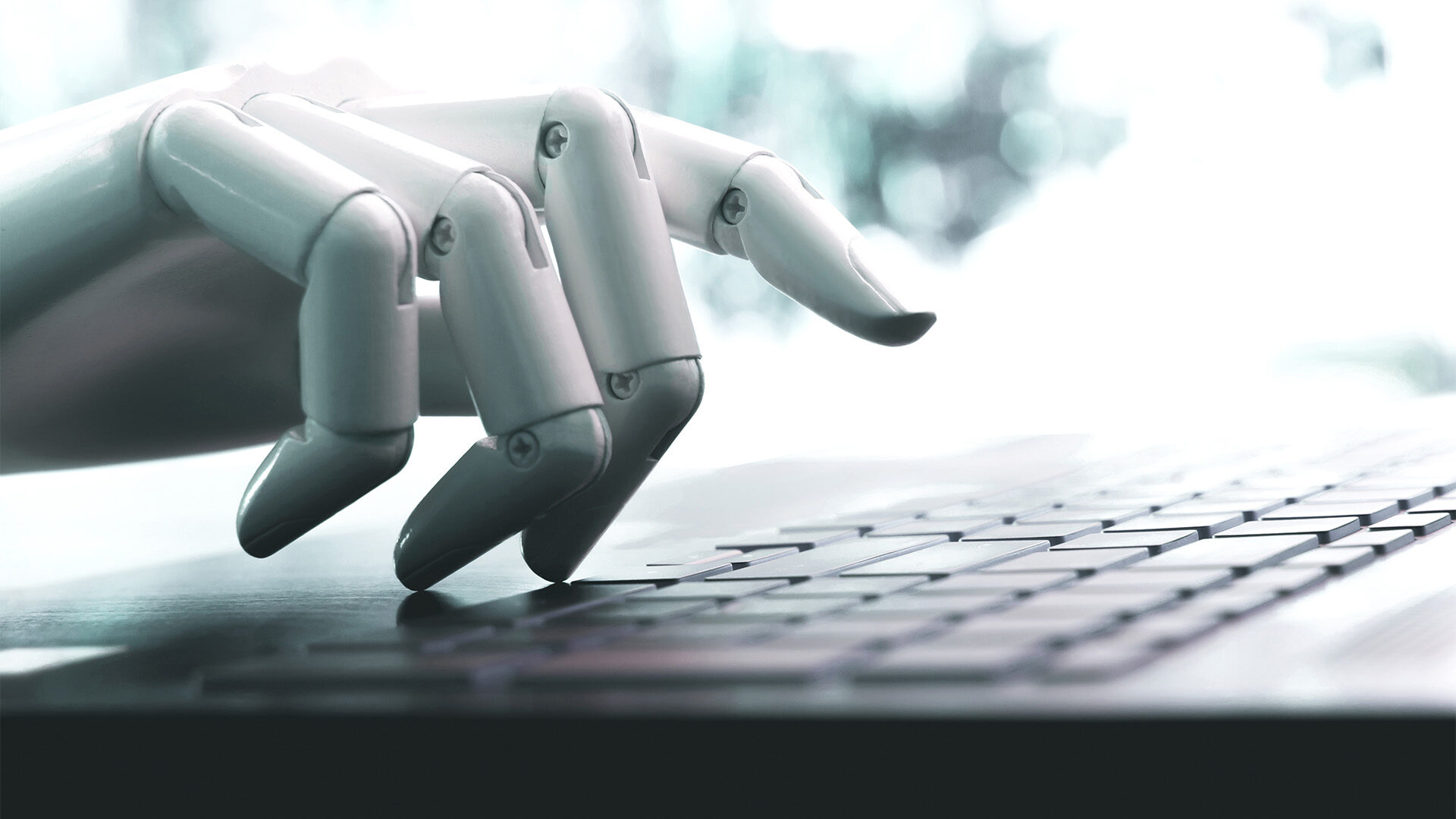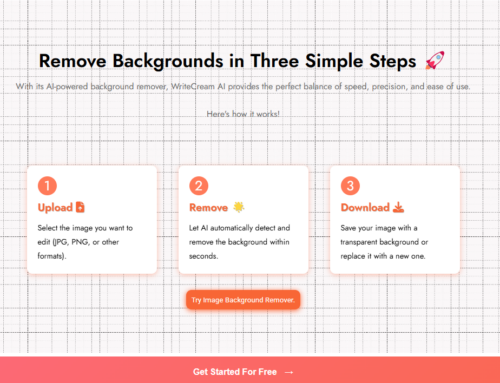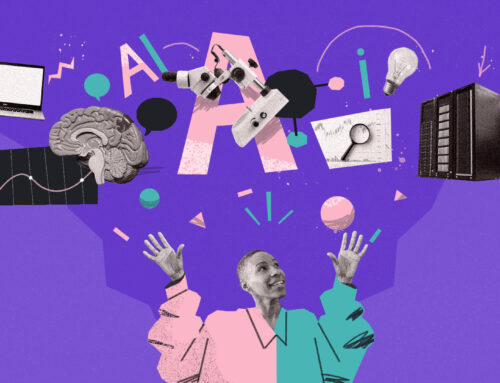Have you ever wondered what it would be like if AI wrote your favorite novel or movie script? Can a machine be as creative as a human? These questions are becoming more relevant as AI continues to evolve and impact different forms of creative writing. Let’s explore how AI’s Impact on Creative Writing is making its mark on storytelling and what the future holds!
AI’s Impact on Creative Writing
Imagine a young writer struggling to come up with a fresh idea. They sit in front of their laptop, staring at a blank page. Then, they decide to use AI to help them brainstorm. Within seconds, the AI suggests a mix of fantasy and historical fiction—something they hadn’t considered before. This is AI’s Impact on Creative Writing in action! AI could offer new ways to combine ideas, making the creative process smoother and more exciting. It’s like having a brainstorming partner that never runs out of ideas—similar to how the best site for college paper writing service can support students when they’re stuck or need a creative boost.
But does this mean AI will replace human creativity? Not at all! AI-generated content can assist human writers, but it cannot fully replace the emotions, depth, and personal touch of a human writer. Artificial intelligence can help writers by providing fresh perspectives, but the final creative work still needs a human mind to bring it to life. This balance between human creativity and AI’s efficiency is what makes AI’s impact on creative writing so fascinating.

How AI Writers Work
Imagine you are a creative writer staring at a blank page, struggling to come up with fresh ideas. This is where AI in creative writing steps in. AI algorithms can provide suggestions, structure, and even generate content based on existing patterns. Generative AI could take a simple idea and turn it into a full-fledged story, helping content creators save time and enhance their creativity. But does this mean AI will replace human writers? Not really! Instead, AI assistance is designed to help writers refine their thoughts and improve their writing skills, rather than take over the entire creative process.
Now, let’s break down how AI’s Impact on Creative Writing work in content creation:
- AI algorithms analyze vast amounts of text to understand storytelling techniques.
- AI story ideas are generated by identifying trends and blending different concepts.
- AI can be used to suggest engaging narratives or assist with editing.
- AI-generated writing helps in drafting articles, but human creativity and originality remain essential.
- AI help ensures efficiency, but it cannot replace human imagination.
The potential impact of AI on the future of creative writing is massive. AI has the potential to revolutionize creative industries by making content creation faster and more efficient. However, some fear that increased use of AI might make writing less creative. While AI assistance is beneficial, the inherent creativity of a human writer remains unmatched. The impact of AI on creative content will continue to grow, but at its core, writing will always need a personal touch that only humans can provide.
How Can AI Combine Ideas to Create Totally New Types of Stories?
AI is not just copying existing ideas—it’s mixing them up in unexpected ways! It studies different genres, themes, and styles from books, movies, and games, then blends them to form something unique. Imagine a story that merges historical fiction with futuristic sci-fi or combines horror with comedy in a way never seen before—much like how Cheap Canvas Wall Art Photo Prints can creatively transform your space with unique and affordable designs.
Here’s what Areej Shaikh, a Professional Content Writer, has to say about this:
“AI can blend different narrative styles, themes, and genres to create innovative storylines that wouldn’t be easily conceptualized by human creators. By analyzing existing literature, films, and games, AI can identify patterns, themes, and character archetypes and then use that data to create entirely new combinations. For instance, AI could fuse elements of fantasy with dystopian themes or mix historical fiction with futuristic sci-fi, creating fresh and unconventional narratives. It can also analyze user preferences in real time, incorporating feedback to adjust storylines, making AI-generated stories highly personalized and dynamic.”
Similarly, Tracie Crites, the Chief Marketing Officer of HEAVY Equipment Appraisal, shares her thoughts:
“AI has the unique ability to draw from vast amounts of information, identifying connections and patterns that humans might overlook. It can merge concepts across genres, industries, and historical contexts to create something completely original. It could, for example, pull themes from ancient mythology, combine them with modern technology trends, and weave a futuristic story that is fresh yet grounded in familiar elements. AI does not rely on a single source of inspiration because it taps into everything it has “learned,” from art and literature to news, cultural moments, and scientific discoveries. This blending of data allows AI to tell stories that reflect the complexity of our world in ways that feel both innovative and unexpected.”
What Are Some Examples Where AI Already Created Something Completely Unique?
AI-generated stories and scripts are not just theories—they already exist! One of the most famous examples is “Sunspring,” a short sci-fi film entirely written by an AI named Benjamin. The script was bizarre, unpredictable, and oddly engaging, proving that AI can produce something truly different.
Here’s what Areej Shaikh says about this:
“There have been a few noteworthy examples of AI creating unique pieces of work. For instance, “Sunspring,” a short science fiction film, was written by an AI named Benjamin, who had been trained on hundreds of sci-fi scripts. The result was an absurd yet fascinating narrative that felt fresh and out-of-the-box. Additionally, AI has been used to generate music albums and even create new art forms in visual design. These experiments show that AI’s ability to combine existing elements can result in creative outputs that stand out in their originality.”
This shows that AI is already contributing to creative fields in ways we never imagined!
Could AI-Written Genres Gain Popularity in Films, Books, or Games?
Could we see entire AI-generated book series or blockbuster movies in the future? It’s possible! AI can help create new genres by blending styles in ways humans might not think of. Imagine a film that is part documentary, part sci-fi, with interactive elements that change based on viewer feedback. AI can revolutionize not only how stories are written but also how they are consumed.
Here’s what Areej Shaikh believes about this:
“Absolutely! AI’s capability to generate unexpected and novel storylines could lead to the emergence of entirely new genres. For instance, AI-generated stories could pave the way for genre hybridization, where the boundaries between science fiction, horror, and drama become more fluid. These new genres could captivate audiences who are looking for something different from traditional narratives. AI could also enhance interactive media, such as video games, where player choices lead to dynamically generated plot developments, ensuring that no two playthroughs are the same.”
AI’s impact on creative writing is just beginning. As technology improves, we might see AI-written bestsellers, blockbuster films, and even immersive storytelling experiences where AI crafts stories based on our emotions and choices in real time.
The Dark Side of AI Writing: Plagiarism, Bias, and Authenticity
AI’s Impact on Creative Writing is undeniable, but not everything about AI is positive. While AI can generate creative outputs and help writers refine their work, it also raises concerns about plagiarism and authenticity. AI algorithms can analyze vast amounts of data to create content, but does that mean everything it produces is original? Research shows AI sometimes pulls ideas from existing works, making it difficult to determine whether AI-written content is truly unique or just a smart remix of something already written by a human.
AI is also transforming content marketing and the way we approach creative writing. While AI can generate new content quickly, it lacks the emotional depth and personal touch that make creative stories memorable. The potential of AI is vast, but its rise also means we must question its impact on creative writing. AI use should be about assisting, not replacing, human creativity. After all, AI is good at processing data, but it still cannot match the instincts and emotions of a writer who takes time writing a story with genuine passion.
For example, AI writing tools have been used to create content for blogs and advertisements, but they often struggle with originality. Creativity scores show that AI-generated content can sound repetitive or generic, making it a less appealing choice for storytelling. While AI can also help with brainstorming ideas from AI suggestions, it should not be seen as a replacement for human creativity. Instead, writers should use AI to write efficiently while maintaining their own unique voice and authenticity.

Ethical Concerns: Who Owns AI-Generated Content?
AI’s Impact on Creative Writing brings up a big question—who actually owns the content AI creates? Since AI systems can generate large volumes of content, it becomes difficult to determine if the work belongs to the person who used AI or if it should be credited to the AI itself. Human writing has always been about personal expression, but using AI would mean sharing the creative process with a machine. This raises concerns about the potential impact on originality and ownership in the creative industry.
Many creative individuals rely on AI for creative tasks, whether it’s for writing short stories, generating targeted content, or enhancing creativity. AI can provide effective content quickly, saving writers time and effort, but does that mean it should replace them? Some experts think AI might be a helpful tool rather than a competitor, allowing a synergy between human and AI’s Impact on Creative Writing to make content more accessible and engaging. However, the effect of AI on ownership and copyright laws remains a hot debate, as content created by a human has always been protected, but AI-generated work still exists in a legal grey area.


